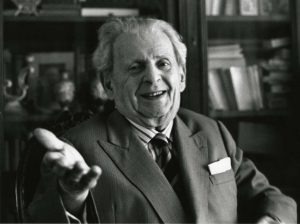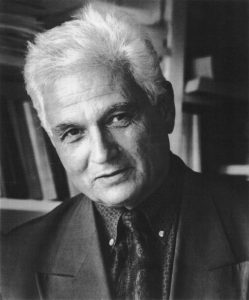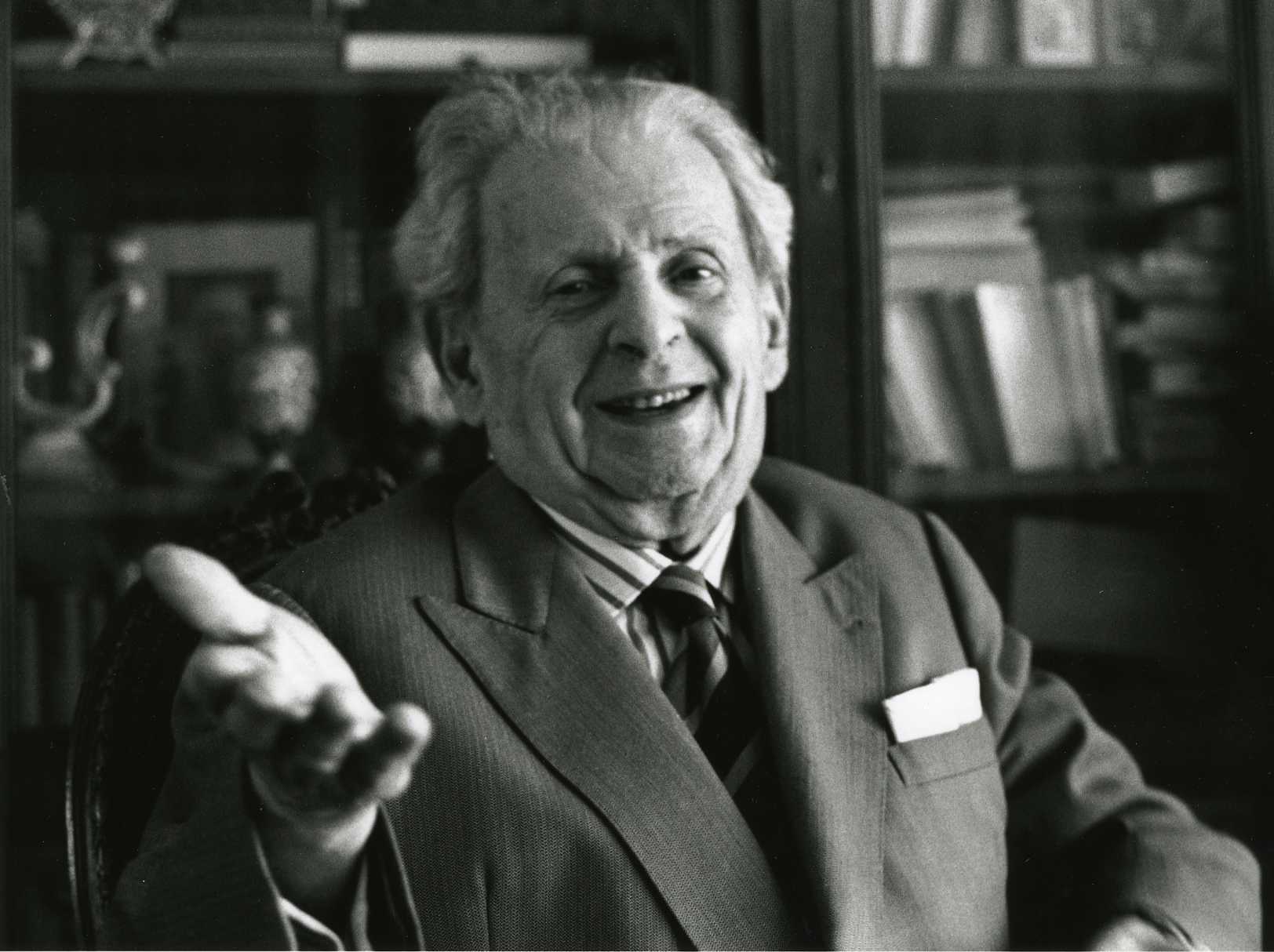 Psychoanalysis has undeniably played a significant role in the development of theories critical of the social landscape. In addition to fostering a new model for self-reflection, it has functioned as a vehicle for the proliferation of subjectivities distinct from the consecrated forms of cultural life. Consequently, I will suggest here that it has an important role to play in the formation of any emancipatory political praxis.
Psychoanalysis has undeniably played a significant role in the development of theories critical of the social landscape. In addition to fostering a new model for self-reflection, it has functioned as a vehicle for the proliferation of subjectivities distinct from the consecrated forms of cultural life. Consequently, I will suggest here that it has an important role to play in the formation of any emancipatory political praxis.
At the same time, I will argue that psychoanalysis requires a phenomenological critique in order to fulfill the ethical demands of justice. To accomplish this, I have juxtaposed the Lacanian theory of analysis with the critical phenomenology of Emmanuel Levinas. My first task, then, will be to explicate a significant commonality between these two thinkers, namely constitutive alterity.
By this, I mean that the subject is always already infused with an Other, without which the ability to respond is both meaningless and arbitrary. I contend that a praxis of resistance follows from this sundered subject, especially if we understand this alterity as an incessant, or infinite, demand. Having drawn these two thinkers together, I must finally highlight a crucial distinction by analyzing their different theoretical starting points. For Lacan, lack is what is essential to an understanding of subjectivity, whereas for Levinas it is excess.
In the former, my desire is the result of an alienating identification, for the latter it is quite the opposite. My approach of the Other is like that of an overflowing cup. For Levinas, desire is “the need of him who has no more needs,” and “it is born in a being that lacks nothing, or more exactly, it comes to birth on the other side of all that can be lacking in him or can satisfy him.”1 Thus, while psychoanalysis alone remains important from the perspective of political theory, it only becomes a positive force for societal transformation once it has been interrogated and re-visioned by critical phenomenology, whose ultimate demand is ethics.
Apart from historical precedent, my interest in psychoanalysis as integral to political praxis stems from a felt need to challenge the predominance of ego psychology in its myriad forms. As the work of historian Eli Zaretsky and documentarian Adam Curtis make abundantly clear, psychoanalysis has often served interests other than those of the “oppressed,” or “repressed,” whichever you prefer. In fact, according to Zaretsky, psychoanalysis helped to catalyze the second Industrial Revolution by creating the “vertically integrated corporation, a corporation that not only organized raw materials and production but also advertising, marketing, and consumption.”2
As ego psychology became the handmaiden of a consumer economy, it helped to perpetuate the myth of completion, by which I mean the fiction that a subject could, in theory, be complete. It is precisely this ideology that I want to critique, since in both Levinas and Lacan the subject is never something complete. To the contrary, the subjectivity that emerges from their work is irreparably split and must instead be assumed as a condition for action rather than resignation from it. I describe this political subjectivity in relation to a “politics of impossibility,” wherein the status of subject is granted in the pursuit of that which can never be finished; or repaired; or cured.
While I do believe the Lacanian emphasis on the unconscious to be in the spirit of Freud’s groundbreaking discovery, and thus essential for a closer examination of the relationship between psychoanalysis and politics, Lacan himself also recognizes the relationship between his work and phenomenology, which has in part prompted my comparison of his work with that of Emmanuel Levinas. Though he more frequently mentions Heidegger — Levinas’ teacher — I want to suggest, for our purposes especially, that a more fruitful dialogue emerges from juxtaposing the two French intellectuals.3 As alluded to earlier, I am especially interested in the relationship between traumatic subjectivity and the politics that might follow from this event.4
However, this is not to imply that there is ever an equivalence between the two; if anything, they are for one another what the Other’s Face is to the accused subject in Levinas. Though never fully traversed, the infinite gap between the psychoanalyst and philosopher is a fecund site to which I now turn. It is perhaps misleading to have “subject” be heard in the singular. In Lacan, at least, there appear to be a variety of subjects, depending on the clinical categories one seeks to elaborate.
Lorenzo Chiesa suggests that “it is clearly possible to divide Lacan’s examination of the subject into three consecutive stages (imaginary subjectivity in the 1930s and 1940s; symbolic subjectivity in the 1950s; real subjectivity in the 1960s and 1970s),” but he also argues for a “continuity underlying these seemingly incompatible phases.”5 So, with Chiesa I will assume for Lacan a subject as “irreducible lack—the real other as the inherent impasse and precondition for the Symbolic—which must actively be confronted and

assumed.”6 This subject is always constituted in relation to an Other’s desire, and so in order to grasp its emergence, we must first probe the mechanism of identification, which directs us to the function of the ego.
As an imaginary function of the subject, the ego is created through identification with an image that seizes and imprisons. Lacan names this particularly powerful image an imago, and I would argue that it appears to operate as a transcendental structure — though I am unaware of Lacan referencing this Kantian framework in the context of imago relations. Nevertheless, these images seem to have always already been there, where “I” am not. And, of course, where I am not is precisely the source of the belief that “I” am a consistent unity. This double mis- recognition — that I am where I am not, and that I am something whole and ultimately unchanging—is what appears to initially strengthen the ego of the human being. This leads to Lacan’s claim that we are creatures dis-adapted to nature, dependent on an illusion for the very being that we so value.
But we are not simply subjects of the imaginary — seized by images — but also subjects of the unconscious—understood as the Other’s discourse. Since language itself is the abode of desire, and the Other’s desires flow into us through discourse, then we can also conclude that “the unconscious is full of other people’s talk, other people’s conversations, and other people’s goals, aspirations, and fantasies.”7 Driven by an-other’s speech, one feels overtaken as by a foreign insistence. In this way, the subject is not simply “unconscious,” as in unaware of her desire, but also subjected to the unconscious. And this immersion in language as Other precedes the alienating identification of the subject with the imaginary.8
At this point, I want to highlight the invasive subjectivation described here by way of Levinas’s own characterization of subjectivity. I will quote at length a passage from Otherwise than Being, in which sensibility is described as being grasped, in contrast to Husserlian intentionality in which the subject is defined as one who grasps, and in order to stress the agony of such an embrace.
“. . . sensibility is being affected by a non-phenomenon, a being put in question by the alterity of the other, before the intervention of a cause, before the appearing of the other. It is a pre-original not resting on oneself . . . It is a writhing in the tight dimensions of pain, the unsuspected dimensions of the hither side. It is being torn up from oneself, being less than nothing, a rejection into the negative, behind nothingness; it is maternity, gestation of the other in the same. Is not the restlessness of someone persecuted but a modification of maternity, the groaning of the wounded entrails by those it will bear or has borne?”9
Serving as an antidote to the sometimes formal, technical language of the analyst, Levinas approaches the inescapable situation of a subject suffocated and ultimately displaced by the demand of the Other. This Other is of course not a phenomenon, insofar as phenomena appear — located as they are on the illuminated horizon. No cause of suffering can be identified, and it seems there is a desperate need of an exorcism. But as he makes clear in one of his earliest texts, there is no escape. Before Sartre, Levinas described this experience of l’exister pur, pure existence—that is, existing without existents—as nausea. Nausea stems from our abandonment to existence, our derelict condition. We are riveted to ourselves, and all promises of salvation are inevitably broken.
This of course coincides with Lacan’s own pessimism regarding hasty revolutionary slogans. A failure to recognize the replacement of one fantasy object with another simply changes the master, not the discourse. For example, if we connect this insight to the offerings of Roosevelt’s “New Deal,” it becomes clear that modern political forms have often, if not always, consisted merely of object changes. The subject is viewed as rational, perhaps even sovereign in a limited sense, and thus, capable of self-legislating reasonable morality.
Consequently, even a cynical age like our own still maintains an unacknowledged belief effaced by calculations and rules presented as self-evident. As always, this self-evidence, or self-certainty, orchestrates a politics of escape from the split or ruptured subject of both Lacanian psychoanalysis and critical phenomenology.
 I maintain that the “unconscious” functions as a displacement central to the awakening of political awareness, but that this particular directedness can only come from a register prior to that of image, or of language (understood as a system of signifiers). The unconscious cannot be understood on the model of consciousness; Levinas in fact spends considerable time distinguishing the subject to which he refers from such confused discussions. For him, “consciousness is the effect of an affect, and this affect is trauma.”10
I maintain that the “unconscious” functions as a displacement central to the awakening of political awareness, but that this particular directedness can only come from a register prior to that of image, or of language (understood as a system of signifiers). The unconscious cannot be understood on the model of consciousness; Levinas in fact spends considerable time distinguishing the subject to which he refers from such confused discussions. For him, “consciousness is the effect of an affect, and this affect is trauma.”10
As one deeply concerned with that which Levinas contends is more prior than a priori, I will nevertheless concede to Lacan the operations of the unconscious within the context of a horizon. And I will assume alienation as a part of entrance into the intersubjective world of human existence, conferring on this subjectivity a degree of alterity.
However, I am not persuaded that the motivation for this entrance is lack. This worldview is the philosophical climate Levinas seeks to leave, and if it remains the condition for analysis, then Lacan and Levinas have little to say to each other. But I am not sure if “irreducible lack” is the only “condition for” or “description of” subjectivity. To the contrary, I want to argue for an excess of being that prompts the desire for escape in the first place—which Levinas claims is impossible except by substitution of the Same for the Other.
Failed attempts to escape our dereliction are what we register as lack, but they actually testify to a flow of being that cannot but be. And yet, Levinas is quick to point out, it is in the moment of futile departure that an opening can be gleaned. This opening is a hesitation in being that he names “transcendence.”
Transcendence in Levinas has nothing to do with deities inhabiting an eternal realm, or for that matter a world of forms perfect and unchanging. Instead, it might be described as a rest, or a refusal. In Existence and Existents, Levinas writes that the “spirituality of the body does not lie in [a] power to express what is inward. By its position it realizes the condition necessary for any inwardness. It does not express an event; it is itself this event.”11
The instant of this event is insubordinate to chronological time, as it diachronically interrupts the movement of temporal flow, the anonymous rustling of the “il y a.” For an analyst, these interruptions would most likely appear as slips or fractures.ButI suspect what distinguishes the analyst from the philosopher here would not be the shape of the revelation but the temporal register.
For Levinas, these disturbances are not of the order of being; they are otherwise, since participation in being always “takes dramatic form in egoisms struggling with one another, each against all, in the multiplicity of allergic egoisms which are [in opposition to] one another and are thus together.” To make this point somewhat differently and in keeping with our concern over different times, immanence is war.12
Initially, this seems difficult to maintain in light of Levinas’s commitment to a materiality on the hither side of materialism. And, of course, if by transcendence we understand a disembodied power operating outside of concrete existence, Levinas would look like an idealist. But nothing could be further from the truth, as Levinas never tired of charging Western philosophy with the crime of idealism—spirit’s supposed triumph over matter.
By immanence, he is describing the denial of relationship in the flow that refuses alterity. Without a pause, a break, to hear the command of the Other, the movements of persons amount to war—a competition that can be likened to Herbert Spencer’s “survival of the fittest.” It is worth noting that Spencer here draws a comparison between Darwin’s evolutionary mechanism—natural selection—and his own economic principles.
The economization of human relationships—a calculated peace you might say—is exactly what Levinas finds objectionable in the modern political theories that depend so heavily on Hobbes’ “state of nature” and Adam Smith’s “self- interested man.” In defiance of these commonly accepted metaphysical assumptions, Levinas proposes an underlying bind that precedes any consciousness and consequently, any political discourse. This bind is likened to the experience of a hostage, seized before the will and directed by what he describes as “substitution.”
The concept of substitution is central to Levinas’s work, and it stands at the center of his argument in Otherwise than Being. However, it is exceedingly difficult to grasp; even now there is not a “consensus about what the question is to which substitution is supposed to be the answer.”13 So, a few rough contours before proceeding. One way to frame Levinas’s reasoning is as a transcendental argument. For the same reasons I suggested above concerning immanence, egoism cannot give birth to generosity.
But Levinas believes there is generosity; there must be something else at work. However, this does not commit him to altruism, which he also opposes with the concept of substitution. Since both egoism and altruism presuppose identity, Levinas needs a different structure. In Robert Bernasconi’s commentary on this difficult idea, substitution also concerns the meaning of concrete experience, towards which Levinas was always oriented. The fact of generosity, or sacrifice, displaces not only the sovereign self of modernity, but also the entirety of Western philosophy. It would appear that concrete experience exceeds our capacity for thinking, opening us to possibilities like ‘substitution.’
I want to suggest that the groans of the Other’s command within us, are precisely our substitution for the Other. But whereas for Lacan, the Other’s desires are numerous, Levinasian alterity issues one command: do not kill. As Simon Critchley makes clear in his work on this injunction, “do not kill” does not translate into pacifism. In fact, the Other’s demand might very well result in violent action, though every deed is nevertheless viewed from the perspective of one who is commanded not to kill. Critchley is here dependent on the analysis of Walter Benjamin, who in his “Critique of Violence,” writes decisively, “Every conceivable solution tohuman problems, not to speak of deliverance from the confines of all the world-historical conditions of existence, obtaining hitherto, remains impossible if violence is totally excluded in principle.”14
Derrida takes this insight a step further, when he writes that our response to theOther is always a sacrifice

of another Other who is also Wholly Other. Tout autre est tout autre. It is perhaps also this which must be borne, not simply the Other within the Same — in Levinas’s words — but also the transgression of ethical duty and thus, the “risk of absolute sacrifice.”15
It seems that we have arrived at an impasse. Insofar as I do not wish to sacrifice the third (illeity), I am required to engage in a politics that interrupts my ethical relation. Though I must do both according to the binding law of alterity, simultaneous responsibility seems like a contradiction in terms. This leaves us with a certain task that is both infinite and impossible, but I contend that the bearing of this “difficult freedom” is what grants the “incomparable unicity” that each person is, and it also stands as the necessary passage from the ethical to the political. I am using “bear” here in two senses, as in to carry a weight and to give birth. This connects to what I referenced earlier from Otherwise than Being, wherein the restlessness of the accused, or commanded one, is a modification of maternity. But what is at stake in this gestation is a subjectivity that remains (perhaps a subjectivity of remains?) after the deaths of countless subjects.16
The desire for justice is wedded to this traumatized subject, one born/e by relation to a pure exteriority, an in-breaking that lives as though it came from within. In contrast to the future driven subject of teleology, the one born of rapture points to an eschaton. A life lived through the collapse of the sovereign self. Eschatological subjectivity is — like the Lacanian subject’s relation to jouissance — an opening to excess. However, in Levinas’s analysis, surplus is not a product but rather the infinity that breaks into the time of circulation. Being has no time for the Other and so, the time of the Other must fracture Being. The eschaton does not consummate the totalizing flow of history but rather cuts into, judges every instant borne.17
Nevertheless, Levinas does maintain that the “I” is not a being that remains the same, but is rather the work of continual identification. This identifying, and alienating, embrace has the “ossature of a subject, of the first person.”18 But, what ultimately breaks this chain of identification, thereby granting irrreplaceability, is not a certain refusal of fantasy, but a command and plea from the Other. The height and depth of this call leave the subject hostage to a disorienting journey without return. One can never be sure whence the summons is given.
In contrast to Odysseus’s promise of homecoming, the desire-filled journey of the accused is that of Abraham.19 This work is forever taxing, a permanent pilgrimage that feels more like exile. Thus, it never experiences the gratitude that would bestow homecoming. Consequently, an infinite patience is required of the one chosen for the infinite task. The subject is required to participate in a time in which she does not belong. There is no security in this practice, no promise of reward. Otherwise, the journey to the Other would cease, would no longer be a trial of exposure. The uncanny, not-at-home-ness, of an Abrahamic subjectivity is fixed by Levinas with the term “liturgy.” But to avoid mistaken appropriations of this term by hasty religiosity, he describes it simply as “an absolutely patient action” that “does not take its place as a cult alongside of works and ethics” but is rather “ethics itself.”20
A politics of impossibility ensues from this traumatized subject, but this never means a politics of resignation. Quite the opposite, this politics refuses easy solutions and makes the further extraordinary claim that our responsibility transcends death, “my deference toward someone who no longer responds.”21 Levinas names this death beyond which I am responsible as rapture. And this rapture is recurrent, as are the many rending interruptions within the separation that is also proximity to Other.
Having arrived at this extraordinarily difficult passage from ethics to politics—one that I have suggested is necessary for a subjectivity not reducible to spirit or matter—I am left with questions regarding the relationship between psychoanalysis and politics: Is it possible to treat the subject as excess rather than lack?
Do we need an experience on the hither side of language-as-system to motivate a politics that risks all for the sake of all? If my desire for the Other stems not from lack but from abundance, how then are we to understand the rupture/rapture at the heart of subjectivity?
Levinas responds that it is not only possible but necessary that we theorize from this “more than enough,” since otherwise the human only has care for existence. But Being in the world, he says, is “precisely to be freed from the last implications of the instinct to exist,” to still “take [the world] seriously and still perform reasonable acts and undertakings” at the “very moment when the world seems to break up.”22
The miracle is not that there is something instead of nothing, but rather that we can enjoy and sacrifice in the eye of an apocalypse. This is an ethical grace, not an ontological mystery.
Joshua Lawrence is pastor of Friedens United Church of Christ in Beasley, Texas as well as a PhD candidate in religious studies. His research focuses on Levinas, political theology, and literary theory as well as psychoanalysis and religion.
________________________________________________________________________
1 “The Trace of the Other,” trans. Alphonso Lingis, in Deconstruction in Context: Literature and Philosophy, ed. Mark C. Taylor (Chicago: University of Chicago Press, 1986), 345-359. [The essay was written by Levinas in 1963.]
2 Secrets of the Soul: A Social and Cultural History of Psychoanalysis (New York: Knopf, 2005), 8.
3 See also Levinas and Lacan: The Missed Encounter, ed. Sarah Harasym (Albany, NY: SUNY Press, 1998).
4 I use the word “event” here in keeping with Levinas’s own emphasis on the body as event and condition for the renewal of freedom central to political struggle. Though there is an admitted resonance between Levinas’s usage and that of contemporary French philosopher, Alain Badiou, I want to stress that Badiou is not concerned with the body as Levinas speaks of it. Instead, a body, for Badiou, is a collective or ensemble that forms in relation to an event. Thus, the body—which is rarely, if ever, an individual body—is derived from the event. For Levinas, the body is a taking up of space in defiance of the anonymous flow of being (the il y a), a necessary rupture with being.
5 Subjectivity and Otherness: A Philosophical Reading of Lacan (Cambridge, MA: MIT Press, 2007), 5.
6 Ibid., 6.
7 Bruce Fink, The Laconian Subject: Between Language and Jouissance (Princeton UP, 1996), 10.
8 Chiesa, Subjectivity and Otherness, 36.
9 Emmanuel Levinas, Otherwise Than Being, trans. Alphonso Lingis (Pittsburgh, PA: Duquesne UP, 1998), 75.
10 Simon Critchley, “The Original Traumatism: Levinas and Psychoanalysis,” in Ethics, Politics, Subjectivity: Essays on Derrida, Levinas, and Contemporary French Thought (New York: Verso Books, 1998), 186.
11 Emmanuel Levinas, Existence and Existents, trans. Alphonso Lingis (Pittsburgh, PA: Duquesne UP, 1978), 70.
12 Levinas, Otherwise than Being, 4.
13 Robert Bernasconi, “What is the question to which ‘substitution’ is the answer?” in The Cambridge Companion to Levinas, ed. Simon Critchley and Robert Bernasconi (Cambridge, UK: Cambridge University Press, 2002), 234-251.
14 As cited in Critchley’s The Faith of the Faithless (London: Verso Books, 2012), 240.
15 Jacques Derrida, The Gift of Death, trans. David Wills (University of Chicago Press, 2008), 68.
16 These “deaths” refer to the efforts of Being to achieve sovereignty. In On Escape, Levinas describes Being’s attempts as analogous to the pursuit of pleasure. Though pleasure seems like the strongest candidate for an escape route or vehicle, at the moment of climax it returns abruptly and with unbearable loss to its continuous, anonymous flow.
17 Emmanuel Levinas, Totality and Infinity, trans. Alphonso Lingis (Pittsburgh, PA: Duquesne UP, 1969), 23.
18 Ibid., 36.
19 Levinas, “The Trace of the Other,” 348.
20 Ibid., 350.
21 Cited in Jacques Derrida, Adieu to Emmanuel Levinas, trans. Pascale-Anne Brault and Michael Naas (Stanford, CA: Stanford UP, 1999), 7.




